Ana Caetano
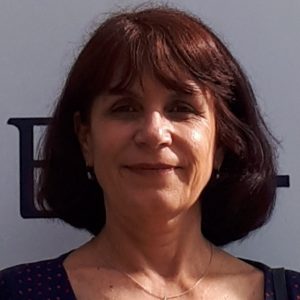
Ana Caetano is a Full Professor of Immunology at the Federal University of Minas Gerais and President of the Brazilian Society of Immunology (SBI).
She was a Visiting Researcher at the University of Bologna, Italy. Her laboratory is interested in the field of immunology, particularly in mucosal immunology and Immunosenescence. She was member of the Advisory Committee of Immunology of Conselho Nacional de Desenvolvimento Científico e Tecnológicos (CNPq) and the Advisory Committee of Biology and Biotechonology Sciences of Fundação de Amparo à Pesquisa do Estado de Minas Gerais (FAPEMIG), and she is now coordinator of the Sub-committee of Mucosal Immunology Nomenclature of the International Union of Immunology Societies (IUIS).
She was granted the Women in Science Award by Sociedade Brasileira de Imunologia (SBI) and CAPES Thesis Award in Biological Science.
Anderson Brito
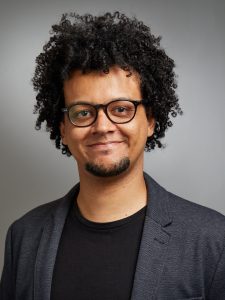
Anderson F. Brito is a virologist and bioinformatician with over 10 years of experience in those fields. Currently he is a Research Scientist at Instituto Todos pela Saúde, ITpS (All for Health Institute), in São Paulo, Brazil (www.itps.org.br). At ITpS he coordinates initiatives of data analysis for near-real time surveillance of infectious diseases.
He holds a PhD in Computational Biology from Imperial College London, and a Postdoc at Yale University (School of Public Health). In his research he develops computational tools to investigate the emergence, geographic spread and molecular evolution of viruses using biomolecular data.
He is an affiliate member of the Brazilian Academy of Sciences (ABC), and a member of #TeamHalo, a science communication initiative of the United Nations (UN) aimed at addressing concerns related to public health misinformation.
Arthur Reingold
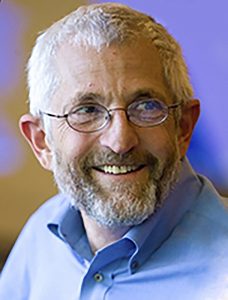
Arthur Reingold is a Distinguished Professor of Epidemiology at the School of Public Health of the University of California, Berkeley, where he previously served as Head of the Division of Epidemiology. After completing his training in internal medicine, Dr Reingold worked at the U.S. Centers for Disease Control and Prevention for eight years, focusing on bacterial infections, especially vaccine-preventable infections in the U.S. and in low income settings around the world.
Since joining the faculty at UC Berkeley in 1987, Dr Reingold has continued to focus his research efforts on the prevention and control of infectious diseases, including pneumococcal infections, meningococcal infections, influenza and, more recently, COVID-19, as well as outbreak detection and response and syndromic surveillance.
For over 30 years, Dr Reingold has also directed the NIH Fogarty AIDS International Research Training Program in partnership with colleagues at UCSF, and taught courses on epidemiology and infectious diseases, not only in the U.S., but also in Brazil, India, Hong Kong, and Uganda, among other places.
Caroline Franco
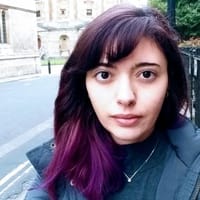
Caroline Franco holds a Doctorate in Physics from the Institute of Theoretical Physics – Sao Paulo State University, and Masters and Bachelor degrees in Physics from the Sao Carlos Institute of Physics – University of Sao Paulo.
After being awarded her Doctoral degree in 2022, Caroline worked as a Postdoctoral Researcher and Teaching Fellow in Modelling for Global Health within the Nuffield Department of Medicine, University of Oxford. She also has experience as an expert modelling consultant in projects commissioned by the World Health Organization, The Global Fund and the UK Health Security Agency.
In 2023, Caroline joined the University of Aberdeen as a Lecturer at the Institute of Applied Health Sciences in the School of Medicine, Medical Sciences and Nutrition.
https://scholar.google.com.br/citations?user=S7lUYf0AAAAJ&hl=en
Deisy Ventura
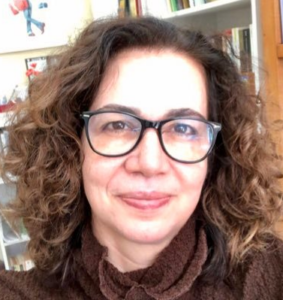
Deisy Ventura is a Full Professor at the University of São Paulo (USP), where she coordinates the Graduate Program in Global Health and Sustainability at the Faculty of Public Health (FSP) and is Deputy Director of the Institute of International Relations (IRI).
Her research is dedicated to studying the rule of law in pandemics, starting with the global response to AH1N1 influenza up until the present. She was President of the Brazilian Association of International Relations (ABRI) between 2019 and 2021. She is a PQ CNPq Level 1B fellow.
She was a consultant for the Inter-American Commission on Human Rights (CIDH) between 2019 and 2021 on topics related to the pandemic; is a member of The Lancet Commission on synergies between universal health coverage, health security, and health promotion since 2018, among other international activities.
She is one of the coordinators of the Working Group Agreement on Pandemics and Reform of the International Health Regulations USP/Fiocruz www.saudeglobal.org
Esper Kallas
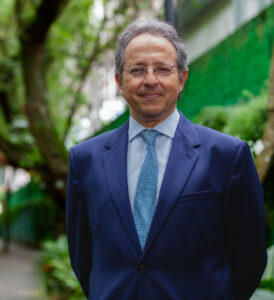
Esper Kallas is a Professor in the Department of Infectious and Parasitic Diseases at
Faculty of Medicine of the University of São Paulo (FMUSP), where he has been a professor since 2009. This year, he became the Director of the Butantan Institute. During the Covid-19 pandemic, he worked on the front line of clinical care and was one of the members of the State Contingency Center of São Paulo. This commission monitored and coordinated actions against the spread of SARS-CoV-2.
Dr. Kallas participated as principal investigator of several clinical trials, such as the dengue vaccine and CoronaVac phase 3. His research interests include the treatment of HIV infection, vaccines, the study of cell cycle effects on the genetic variation of HIV-1, immunology in infectious diseases, relationship host-parasite and clinical immunology.
Ester Sabino
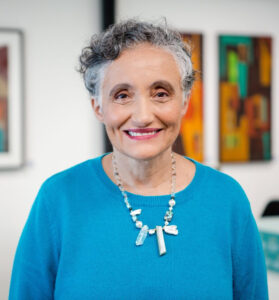
Ester Sabino is a physician and professor at the Institute of Tropical Medicine at the University of Sao Paulo Medical School. During her research’s early phase, her work focused on HIV diversity.
After returning to Brazil, she collaborated with the Brazilian Ministry of Health AIDS Program to establish a laboratory network to perform viral load and drug-resistant testing. In 2005, she organized a blood bank network to participate in the NHLBI/NIH REDS program focused on blood safety. In 2011 she joined the University of Sao Paulo Medical School and led the establishment of large cohorts of blood donors with Chagas disease and sickle cell disease. She served as Director of the Institute of Tropical Medicine from 2015-2019.
Since 2015, she has been participating in the international effort to establish a rapid research response to new emerging diseases. She has published more than 300 peer-reviewed papers and has directly trained over 50 post-doc graduate students. She is a Brazilian Academy of Science member and received the Armando de Oliveira Salles medal from the University of São Paulo
Guilherme Werneck

Guilherme Werneck is a full professor in the Department of Epidemiology of the State University of Rio de Janeiro and the Institute for Public Health Studies of the Federal University of Rio de Janeiro.
He has an appointment as a visiting scientist at the Department of Global Health and Population at the Harvard T. H. Chan School of Public Health/HSPH and is a Senior researcher of the Brazilian Research Council, and was a member of the “WHO Expert Advisory Panel on Parasitic Diseases (Leishmaniasis)”.
He was the Coordinator of the Public Health Graduate Programs at CAPES (2014-2018).
His research focuses on the epidemiology of infectious diseases, with a particular interest in the identification of socioeconomic and environmental determinants of the occurrence and spread of neglected tropical diseases (mainly visceral leishmaniasis), use of spatial data analysis, geographic information systems and remote sensing in epidemiology and public health; urbanization and health; use of epidemiologic and statistical methods in health sciences.
Jarbas Barbosa
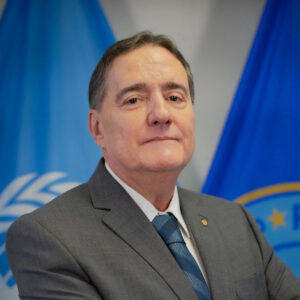
Jarbas Barbosa is the Director of the Pan American Health Organization (PAHO), which he joined in 2007. Previously, he served as Coordinator of the Program for Sexually Transmitted Diseases and HIV/AIDS in Pernambuco State, Director of the National Center for Epidemiology (CENEPI), Secretary of Surveillance in Health, Executive Secretary, and Secretary of Science, Technology and Strategic Inputs of the Brazilian Ministry of Health. He was also president of the Brazilian Health Surveillance Agency (ANVISA).
Dr. Jarbas has a vast experience in coordinating policies related to surveillance, prevention and control of infectuous and non-infectious diseases and regulatory mechanisms in public health. During the COVID-19 pandemic, he led the PAHO’s efforts to support Member States in reducing the impact of the emergency through public health programs.
Julia Raifman
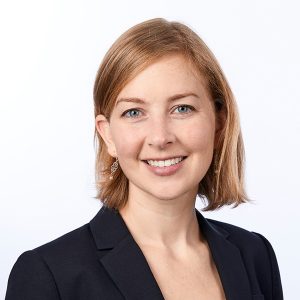
Julia Raifman is an assistant professor in the School of Public Health at Boston University. She leads the Health Inequities Strategic Research area and the Diversity, Equity, Inclusion, and Justice Committee in the Health Law, Policy, & Management Department. Dr. Raifman teaches Quantitative Methods for Health Services and Policy Research.
She conducts research on how health and social policies shape population health and health disparities. She created and leads the COVID-19 U.S. State Policy Database (CUSP), tracking more than 200 state policies to prevent COVID-19 and reduce economic hardship during the pandemic. Her research on unemployment insurance and food insufficiency helped inform the American Rescue Plan and she is a collaborator on a study indicating that lifting state eviction freezes was associated with increased COVID-19 cases and deaths, a finding that helped uphold a federal eviction moratorium until the fall of 2021.
She has also documented how structural racism shaped disparities in susceptibility to severe illness due to COVID-19. She has communicated about policy evidence and health disparities widely in the media. She has written extensively about reducing disparities in access to vaccines, rapid tests, and high-quality masks and about data-driven mask policies as a potential long-term strategy to reduce the pandemic’s disruptions to lives, health, and the economy.
Leonardo S. Bastos
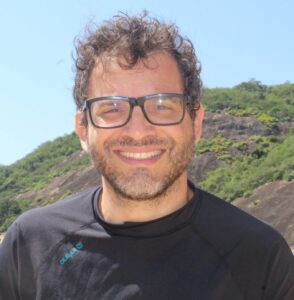
Leonardo S. Bastos is a research scientist in the Scientific Computing Program (PROCC) of the Oswaldo Cruz Foundation (Fiocruz).
A statistician, Dr. Bastos research focuses on the development and application of advanced statistical methods aimed at the epidemiology of infectious diseases.
During the COVID-19 pandemic, Dr. Bastos worked with colleagues in an early warning system for COVID-19 hospitalizations. He has worked on other epidemic threats, including dengue, Zika, chikungunya, and malaria. He holds a Young Scientist Nosso Estado fellowship from FAPERJ and a CNPq productivity fellowship.
Lorena G. Barberia
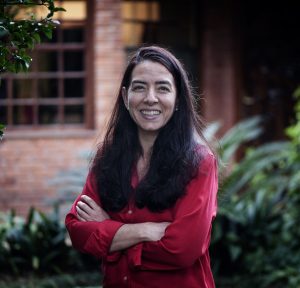
Lorena G. Barberia is an assistant professor in the Department of Political Science at the University of São Paulo (USP). Dr. Barberia teaches Quantitative Methods for political science and policy research.
Her recent work analyzes the determinants of subnational and national policy responses to the COVID-19 pandemic in Brazil. Professor Barberia teaches quantitative methods for undergraduate and graduate courses in the Department of Political Science. She is a founder and the scientific coordinator of the Solidarity Research Network Public Policy and Society (Rede de Pesquisa Solidária em Políticas Públicas e Sociedade), a multidisciplinary and research network that seeks to improve the standard, calibrate the focus and improve the quality of federal, state, and municipal government policies that seeks to respond the COVID-19 pandemic in Brazil. She is also a member of Observatório Covid-19 BR, an independent initiative that disseminates quality information about the current COVID-19 pandemic based on up-to-date data and scientific methodology.
In 2020, she was awarded a prize for her contributions to science at USP (Mulheres na Ciência- Destaques 2020).
Marcelo Gomes
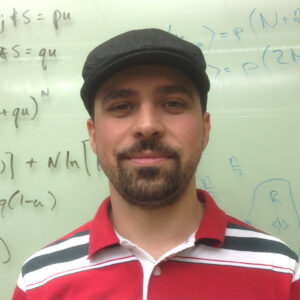
Dr. Gomes is a public health researcher at the Scientific Computing Program (PROCC) of Fiocruz. He is a faculty of the Epidemiology in Public Health graduation program at ENSP/Fiocruz and of the Systems and Computational Biology graduation program at IOC/Fiocruz.
His main areas of research are computational models for disease propagation, human mobility applied to epidemiology, and epidemiological surveillance systems, with special focus in respiratory infections.
He is a scientific partner of the national surveillance network of respiratory viruses and coordinator of Infogripe, an analytical system for near-real time surveillance of respiratory infections in Brazil. He was also a member of the Technical Advisory Board for COVID-19 Immunization, for the Brazilian Ministry of Health, having contributed with scientific analysis to help define priority groups for the national vaccination campaign and regular updates of the impact of vaccination in COVID-19 hospitalizations in Brazil.
He is a member of the Observatório Covid-19 BR.
Maria Amélia Veras
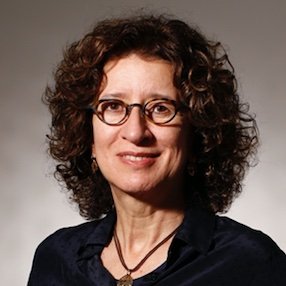
Maria Amelia Veras is a Professor of Epidemiology in the Collective Health Department of Santa Casa Medical School in São Paulo, Brazil, where she coordinates the graduate program (Master and PhD in Collective/Public Health). Dr. Veras is an epidemiologist with over 25 years of experience in conducting epidemiological studies related to HIV/AIDS in Brazil, especially those addressing the LGBT+ community.
She is the leader of the research group Health, Sexuality and Human Rights of LGBT community (NUDHES). Her research interests include stigma and its role in health inequalities affecting the LBGT+ population in Brazil, barriers to access HIV/AIDS and other sexually transmitted diseases prevention and care. She is a member of the Observatório COVID-19 BR, an independent initiative that disseminates quality information about the current COVID-19 pandemic based on up-to-date data and scientific methodology.
Maria Rita Donalísio
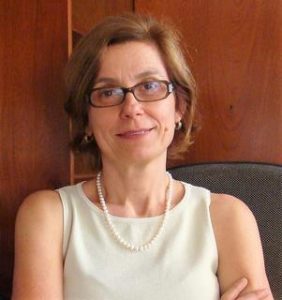
Maria Rita Donalísio is an epidemiologist and full professor at the Department of Collective Health in the Faculty of Medical Sciences at the State University of Campinas, São Paulo.
She works with infectious disease epidemiology and epidemiological surveillance, particularly zoonoses of public health importance, focusing on the One Health perspective. She coordinates research projects in the epidemiology of (re)emerging infections and spatial analysis in collaboration with the Institute of Biodiversity at the University of Kansas and Universidad Autonoma de Puebla, Mexico.
She accompanies and advises the “situation room” in the Health Department of the municipality of Campinas, SP, for monitoring, control and intervention in events of public health relevance.
She is a member of the Observatório Covid-19 BR.
Mariangela Simão

Between 2006 and 2010, she served as Director of the National STD/AIDS and Viral Hepatitis Department in the Brazilian Ministry of Health, where she led successful price negotiations with pharmaceutical companies to lower the price of HIV medication. During this time, she also represented the Brazilian Ministry of Health in the negotiations that led to the constitution of UNITAID in 2006, including its governing body, where she served as a board
member until 2008.
Marcia Castro
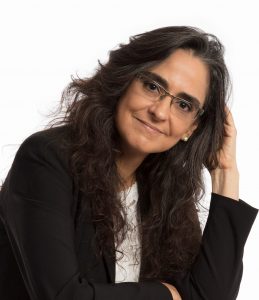
Marcia Castro is Andelot Professor of Demography, chair of the Department of Global Health and Population at the Harvard TH Chan School of Public Health, director of the Brazil Studies Program of the David Rockefeller Center for Latin American Studies (DRCLAS) at Harvard University, associate faculty of the Harvard University Center for the Environment, and faculty member of the Harvard Center for Population and Development Studies.
Her research focuses on the development and use of multidisciplinary approaches to identify the determinants of infectious disease transmission in different ecological settings to inform control policies. She has more than 20 years of research experience in the Brazilian Amazon, with a strong record in the conduct of household surveys, and solid knowledge of the local culture.
She has more than 15 years of collaboration with Brazilian researchers, Health Secretariats, and the Ministry of Health particularly related to infectious diseases. She made important contributions during recent public health emergencies (the Zika virus epidemic and the COVID-19 pandemic). At the World Health Organization, she served as co-chair of the Technical Consultation on The Burden of and Response to Malaria in Urban Areas in 2021, and in 2017 as an Advisor of the Evidence Review Group on border malaria. She serves on several advisory boards in Brazil, including the Institute for the Studies of Health Policies (IEPS), the Science Center for Early Childhood (NCPI), Instituto Todos Pela Saúde (ITpS), and Instituto Cactus.
She is a columnist for Folha de São Paulo, and was elected member of the American Association for the Advancement of Science. Castro has projects on malaria, COVID-19, arboviruses, infant/child mortality and development, and climate change in the Brazilian Amazon. Specifically, on COVID-19 she has been assessing the spatiotemporal pattern of COVID-19 spread in Brazil, mortality, and fertility changes due to the pandemic, risk factors for mortality, and vaccine effectiveness. She earned a Ph.D. in Demography from Princeton University.
Mike Busch
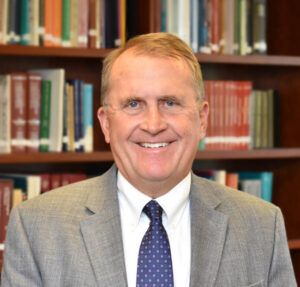
Michael Busch is the Professor of Laboratory Medicine at the University of California, San Francisco. His major research interests include the epidemiology, natural history, pathogenesis, and laboratory evaluation of transfusion-associated infections, blood safety implications of new and emerging viruses, and immunological consequences of transfusion. He has focused on a wide spectrum of transfusion-transmitted infectious diseases and immunological complications to enhance blood safety and to capitalize on the unique opportunities for natural history and pathogenesis research derived from identification of research subjects as a result of large-scale blood and plasma donor screening.
He has played a leadership role in a number of national multicenter research studies funded by NIH and CDC contracts and has directed numerous NIH and CDC grant-funded studies based at the Research Institute and conducted in collaboration with UCSF, UCB and other national and international institutions. Dr. Busch has published nearly 500 peer-reviewed original scientific articles, and over 150 review articles, editorials and book chapters.
Neil Ferguson
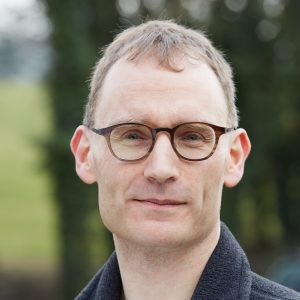
Neil Ferguson founded and directs the Jameel Institute and the MRC Centre for Global Infectious Disease Analysis at Imperial College London. He also heads the NIHR Health Protection Research Unit for Modelling and Health Economics. He is an International Member of the US National Academy of Medicine and a fellow of the UK Academy of Medical Sciences. Neil uses mathematical and statistical models to investigate the processes shaping infectious disease pathogenesis, evolution and transmission. In addition to basic theoretical work, Professor Ferguson has applied models to study the transmission and control of multiple infectious diseases. He was educated at Oxford University where he also worked before moving to Imperial College. He is best known for the real-time modelling of emerging infectious disease outbreaks, having worked on the transmission dynamics and control of SARS, avian (H5N1) and pandemic (H1N1) influenza, MERS-coronavirus, Ebola, Zika and now COVID-19. His other major research interest is in vector-borne diseases – he has worked on dengue throughout his career and more recently has expanded his research to include Yellow fever, Zika and malaria. Neil has always worked at the interface of science and policy, and advises governments, the World Health Organisation and multiple other bodies on emerging infections and infectious disease epidemiology and modelling.
Nuno Faria
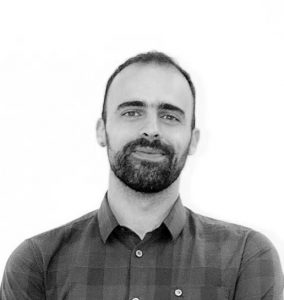
Nuno Faria is a Reader in Virus Evolution at the Faculty of Medicine, School of Public Health, Imperial College, an Associate Professor at the Department of Zoology, University of Oxford, an Associate of the Oxford Martin School Programme on Pandemic Genomics, and an invited Professor in Infectious Diseases at the Institute Tropical Medicine, University of São Paulo, Brazil.
In December 2021, he became part of the World Health Organization Technical Advisory Group (TAG) on Arboviruses. Between 2013 and 2017, he was a Research Lecturer in Infectious Disease Control in the University of Oxford. He coordinates the Brazil-UK CADDE Centre (Centre for Arbovirus Discovery, Diagnostics, Genomics, and Epidemiology) with Prof. Ester Sabino from the University of São Paulo.
He also leads the ArboSPREAD project, a network for surveillance of arbovirus spread and persistence across corridors of ecological suitability between Angola and Brazil that characterized a Zika outbreak caused by Asian genotype lineage in Angola. He previously co-led the ZiBRA project in northeast Brazil for real-time genome sequencing of the Zika virus in Brazil.
Oswaldo Cruz
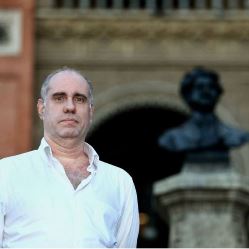
Oswaldo Gonçalves Cruz is part to the Scientific Computing Department (PROCC) of Fiocruz, is a permanent faculty member of the Epidemiology and Public Health program of ENSP/FIOCRUZ and was also a permanent member of the Computational Biology program of IOC/FIOCRUZ.
His main areas of expertise are: spatial data analysis, epidemiological surveillance, spatio-temporal analysis, violence, micro-areas analysis methods, data mining and biostatistics.
During the COVID-19 pandemic, he actively participated in helping to coordinate the City of Rio de Janeiro’s response. He is also a member of the Observatório Covid-19 BR.
Pedro Arcos González
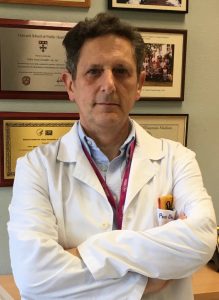
Pedro Arcos González is a medical epidemiologist and researcher.
He is an Associate Professor of Epidemiology at the University of Oviedo Medical School and Director of the Unit for Research in Emergency and Disaster (UIED). He was one of the founders and President of the NGO Médecins Sans Frontieres. He has worked in international cooperation programs in the field of Epidemiology and disasters in twenty countries in Africa, America, and Asia.
He is Technical Advisor of the European Regional Office of the World Health Organization.
Tatiana Roque

Tatiana Roque is Full Professor at the Institute of Mathematics at UFRJ, where she teaches in the postgraduate courses in Philosophy and Teaching and History of Mathematics and Physics.
She is a “Scientist of Our State” by Faperj, author of the book The Day we Return from Mars: a history of science and power with clues to a new present (Ed. Planeta), finalist for the Jabuti award. She won this prize in 2013 with the book History of Mathematics: a critical view undoing myths and legends (Ed. Zahar).
She has a doctorate in the area of history and philosophy of science from COPPE-UFRJ in partnership with the SPHERE laboratory of CNRS-Paris. She was a researcher at the Collège International de Philosophie in Paris.
It integrates, as a foreign member, the research laboratory in epistemology and history of sciences Archives Poincaré, of the Université de Lorraine (France).
São Paulo School of
Advanced Science on
Epidemic Preparedness

